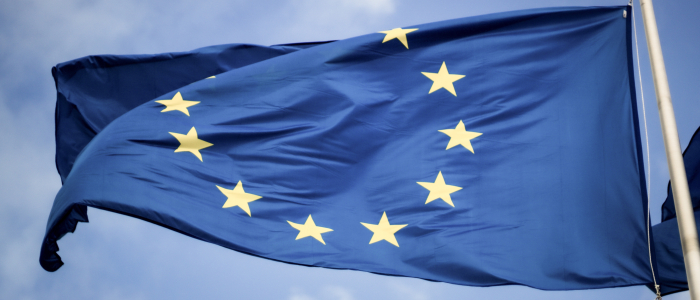
Following the amendment of Regulation (EU) 833/2014 as part of its 14th sanctions package against Russia (article of 26 June 2024), the EU has now adopted Regulation (EU) 2024/1865 of 29 June 2024, which significantly extends the scope of sanctions against Belarus provided for in Regulation (EU) 765/2006. Large parts of the restrictive measures in Regulation (EU) 765/2006 have been replicated from those in Regulation (EU) 833/2014, making it clear that the EU is increasingly aligning its sanctions against Belarus with those imposed on Russia.
We have summarised the most relevant changes below.
“No Belarus” clause
The EU has introduced a provision in Article 8g Regulation (EU) 765/2006 that mirrors the “No Russia” clause requirement established in Article 12g Regulation (EU) 833/2014 as part of the 12th sanctions package against Russia. Under the new Article 8g Regulation (EU) 765/2006, companies are required to contractually prohibit the re-export of certain goods and technology to and for use in Belarus and, consequently, to extend the “No Russia” clauses they have already implemented to include corresponding restrictions on Belarus.
IP restrictions
The IP restrictions introduced in the 11th sanctions package against Russia were previously not part of Regulation (EU) 765/2006. A new paragraph 2c adds these IP restrictions to the export restrictions on goods provided for in Articles 1ba, 1bb, 1e, 1f, 1fd, 1ga, 1gc, and 1sa Regulation (EU) 765/2006.
Compliance requirements for common high priority items
The 14th sanctions package against Russia introduced special compliance requirements for items on the common high priority list in Article 12gb Regulation (EU) 833/2014. The new Article 8ga Regulation (EU) 765/2006 contains a similar provision for Belarus. The relevant lists of goods (Annex XL to Regulation (EU) 833/2014 and Annex XXX to Regulation (EU) 765/2006) are identical, at least for now. In this regard, it is encouraging that – compared to the introduction of the “No Russia” clause and the new “No Belarus” clause – the time lag between adoption of the parallel provisions in Regulation (EU) 833/2014 and Regulation (EU) 765/2006 is minimal, allowing companies to harmonise their implementation of the measures aimed at preventing (further) exports to Russia and Belarus.
Prohibition of services
The prohibition of services introduced in Article 5n Regulation (EU) 833/2014 has also been largely incorporated into Regulation (EU) 765/2006 (in Article 1jc). However, there is a significant difference: In deviation from Article 5n (EU) 833/2014, the new Article 1jc Regulation (EU) 765/2006 does not prohibit the provision of services to any legal person, entity or body established in Belarus, but “merely” the provision of services to the Republic of Belarus, its Government, its public bodies, corporations or agencies (Article 1jc(1)(a)), or to any natural or legal person, entity or body acting on behalf or at the direction of the Republic of Belarus, its Government, its public bodies, corporations or agencies (Article 1jc(1)(b)).
Best-effort obligation for subsidiaries’ sanctions compliance
The new “best-efforts” obligation in the 14th sanctions package against Russia (Article 8a Regulation (EU) 833/2014) – under which EU parents must use their best efforts to ensure that their subsidiaries do not undermine EU sanctions – is mirrored in the new Article 8i Regulation (EU) 765/2006.
Other provisions replicated from Regulation (EU) 833/2014
The changes to Regulation (EU) 765/2006 also introduce bans already imposed on Russia by Regulation (EU) 833/2014:
- Article 1bb prohibiting the export of goods that could contribute to the enhancement of Belarusian industrial capacities, Annex XVIII
- Article 1fd prohibiting the export of maritime navigation goods, Annex XXIV
- Article 1ga prohibiting the export of luxury goods, Annex XXV
- Article 1gb prohibiting the participation in companies operating in the energy sector in Belarus
- Article 1gc prohibiting the export of goods suited for use in oil refining and the liquefaction of natural gas, Annex XX
- Annex 1ra prohibiting the import of goods allowing Belarus to diversity its sources of revenue, Annex XXV
- Article 1rb prohibiting the import of gold, Annexes XXI and XXII
- Article 1rc prohibiting the import of diamonds, Annex XXIX
- Article 8da enabling the sale of these goods where necessary for divestment from Belarus
- Article 8h on damages in connection with Belarussian claims awarded without legal protection)
Outlook
With these additions, the sanctions imposed on Belarus largely coincide with the sanctions imposed on Russia. Like certain provisions of the Regulation (EU) 833/2014, key provisions of Regulation (EU) 765/2006 now also impact companies that do not maintain economic relations with Belarus. The obligation to include the “No Belarus” clause in contracts and the additional compliance requirements for common high priority items will predominantly impact business that export extensively.
